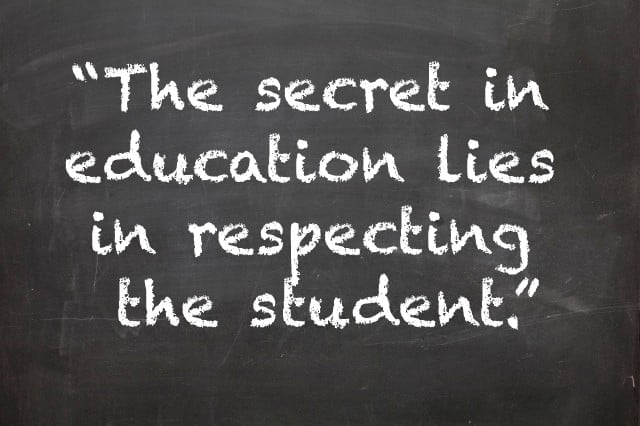The importance of sixth form cannot be overstated, and this is the case with regard to academic measures and the growing maturity and development of youngsters. The performance of a student at sixth form will often determine what college or university they can gain access to and what courses they can study. So if university is their goal, sixth form has to be taken seriously.
While the results obtained are crucial in determining the path of a student, their overall behaviour and attitude can make a difference to their career or educational path. Sixth form bodies can provide letters of recommendation to further educational institutions and these have a big impact on whether a student is accepted for further studies. This means that while focus has to be placed on exam results, the everyday approach of a student will also be relevant to their next step in life.
Other reasons why sixth form is important include:
- The first year of sixth form represents the easier half of the overall marks, compared to A2.
- Sixth form is a crucial bridge between school and further education or work.
- Sixth form is not compulsory, so it is an opportunity for youngsters to develop in areas of their choice and particular strength.
All of these factors come together to ensure that sixth form is vital for any student with specific career aims or ambitions. That doesn’t mean that it is for everyone however, and there are some great alternatives available for anyone who doesn’t feel sixth form is for them.
There is a wide range of emotions involving students and sixth form
It is understandable that there is a wide range of emotions for students upon entering sixth form. Their timetables are more flexible, and not being forced to wear school uniform (in certain sixth forms) is a big step forward for many youngsters. Students who desire independence and more responsibility find that sixth form provides them with the freedom and opportunities that they crave.
One aspect that can impact on how well a student takes to sixth form is the location and whether their group of friends is around. Knowing people and being social can help youngsters settle in quickly but there is an argument that getting out of a comfort zone helps youngsters to meet new friends and develop social skills. Whether sixth form is a benefit or hindrance with respect to social development will often depend on the nature of the student.
The fact that sixth form will have a huge impact on the life of a student can mean that many students feel overwhelmed or concerned about the importance of the year. Some students will thrive on this challenge whereas others will have concerns about letting themselves or their family down, or ruining their chances of success in life. While students need to know the importance of sixth form results, they shouldn’t feel so pressured that failure isn’t an option.
Managing the jump from GCSEs to sixth form
An initial issue for the majority of students is managing the jump to sixth form from GCSE level. I remember this well and having felt reasonably comfortable with GCSE level work, my first couple of months of A-Level work was a bit of a shock.
A combination of more free time, a bigger workload, the pressures of being an adult and the importance of the end result, ensures sixth form is a massive step up from GCSE level. Acknowledging this as early as possible and putting in support mechanisms will enhance a student’s opportunity in this vital school period.
It is important to be aware of the pressure that is placed on students at this stage of their life. With so much importance placed on academic results and further education, the sixth form is the gateway to the rest of their life, and poor results at this level can block off many paths or career routes. It is important that students know what is at stake at this point of their life, so they approach it seriously, but there is also a need to help them relax as much as possible.
Parents have a role to play in helping their child prosper at sixth form
A parent should provide the student with guidance in picking the best school for them and understanding the best path. Not every youngster knows what they want to achieve, so picking a timetable or school can be a challenge. Finding the most appropriate school is often crucial, with a school such as the Hornsey School for Girls being one option. If your child has a particular talent or interest, sixth form might be the time to explore that further and head for a more specialist school or college that can offer the choice, opportunity and support they need. There are so many options of places to go for sixth form, spend some time with your child considering the options so they can make the best choice.
It isn’t always possible for parents to provide financial support or incentives for study and good grades but if this is an option, it could be considered. If nothing else, parents should aim to be supportive and should look to create a relaxed environment at home where students can study.
There also needs to be acceptance that sixth form students are no longer children. These youngsters will receive more responsibility and be treated like adults at school, so parents should look to offer more responsibility and respect at home. Parents have a role to play in ensuring their child succeeds at sixth form, and the right assistance can push a youngster to greater levels. At the same time, creating unnecessary pressure or expectations or not listening to what they want their path to be, can be detrimental to success.
It is a fine and difficult line for a parent.




